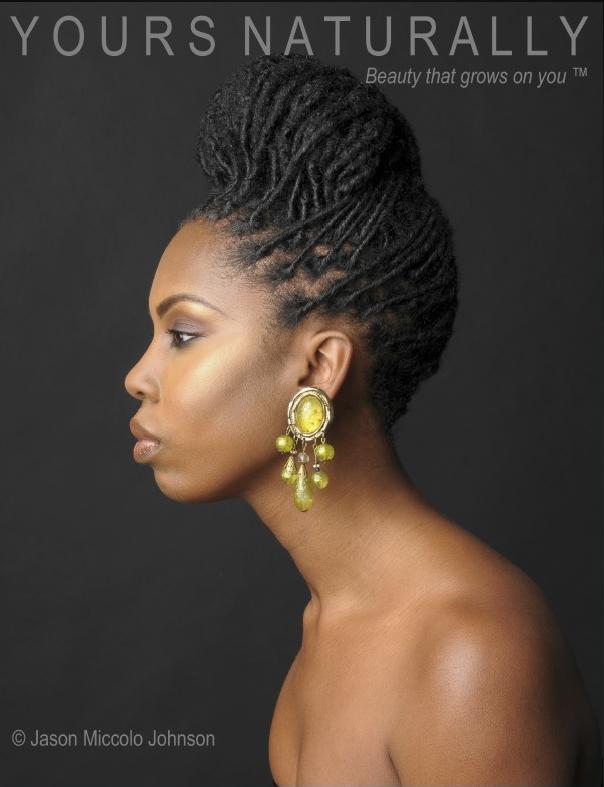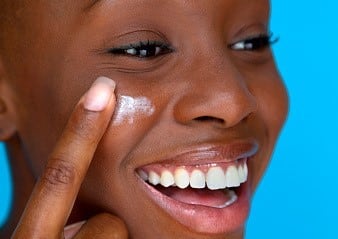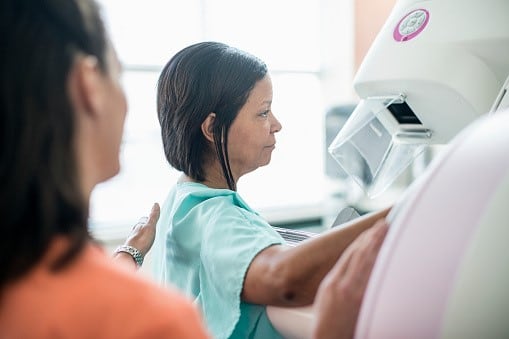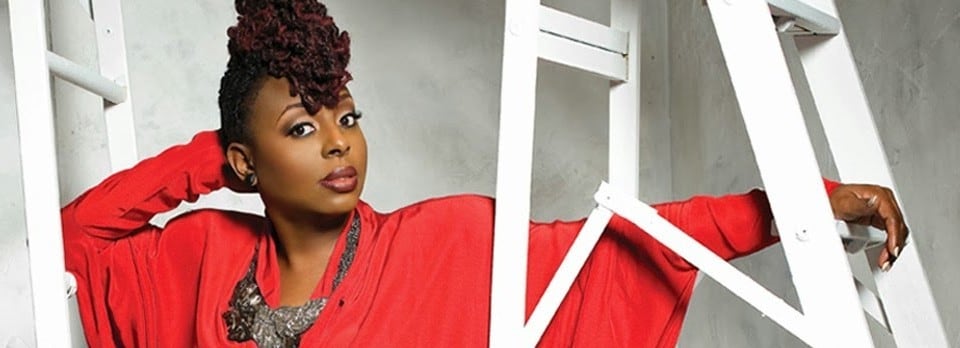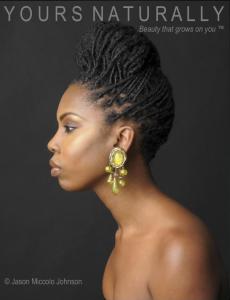
The national exhibit “Yours Naturally: Beauty That Grows on You” features 45 photographs by Jason Miccolo Johnson.
Jonelle Henry decided to go natural after a stylist insisted that a relaxer sit in her hair for 20 more minutes, despite it burning her scalp.
“That 20 minutes pretty much changed my whole perspective,” Henry says. “It changed my self-esteem, and when I walked out of there I never went back to a salon to get a relaxer again.”
Henry shared her experiences on a panel as part of the national exhibit, “Yours Naturally: Beauty That Grows on You,” featuring 45 photographs by Jason Miccolo Johnson. The program included a reading of Maya Angelou’s poem “Phenomenal Woman” on what would have been her 87th birthday during the tour’s kickoff at the Martin Luther King Jr. Memorial Library in downtown Washington.
Johnson, who served as the panel’s moderator, also presented a slide show, “The Politics of Natural Hair, 1968-2015,” which took viewers on a 50-year journey exploring black hair from the late ’60s to the present with images of Angela Davis, Alice Walker, Toni Morrison, Rick James and Viola Davis.
Henry, a producer for C-SPAN, helped to bring awareness about the issues faced by black women with natural hair along with Maria Fenton, owner of the Living Art House, and Pamela Ferrell, owner of Cornrows & Co., a natural hair care salon that also offers a line of products.
Like Henry, Fenton also talked about not wanting to go through the pain of a relaxer.
“I got to a point where I used to have to take Tylenol and cold water before I got a relaxer,” says Fenton, who learned how to do her own hair.
“Think about it. If you have to prepare your body like you’re going to have a medical treatment, something’s wrong.”
Ferrell, who was fired from her job in 1978 for wearing a braided hair style, says that she encounters lots of women who not only lose their hair from relaxers, but also from what she calls “systemic health issues.” Ferrell, who makes natural hair pieces for women with hair loss, says that women only had the option of wearing straight wigs in the past.
“When you talk about image, our images are shaped by what we see,” Ferrell says. “We are constantly bombarded by images that we, quite frankly, don’t control. So in terms of images, the more we wear our hair natural, we at least put out that image so women can see they have other options.”
Throughout the discussion, panelists covered topics such as whether the growing number of black women with natural hair is a movement to how to deal with curious people outside the African Diaspora.
Henry said that she would not allow people to touch her hair, but she encouraged a healthy conversation. One comment she often hears is, “Wow, you can do so much with your hair.”
In discussing natural hair and the workplace, Fenton talked about walking away from a job because the employer asked her to pull back her hair, which she said essentially was not allowing her to be herself. Ferrell urged women with natural hair not to change.
When it comes to maintenance, panelists suggested that women use more natural products. They also noted that no one product works for all women and that it is important for each person to understand her hair texture. Ferrell encouraged women to redefine their “kinky” and “nappy” hair as what she calls “circle hair.”
“If you were to comb, brush or wash [your hair] and look at it, our hair is circles, perfect circles” says Ferrell, referring to the coil or shape of hair regardless of the range of types.
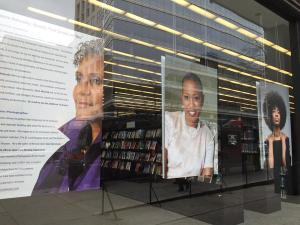 Overall, panelists saw hope in the growing awareness of the benefits of having natural hair, but Henry says that going natural is not just a simple thing.
Overall, panelists saw hope in the growing awareness of the benefits of having natural hair, but Henry says that going natural is not just a simple thing.
“It’s a journey,” Henry acknowledges. “I didn’t really know what I was doing, but I knew that I didn’t want to feel the way that I felt when I was in that salon.”
Fenton mirrored Henry’s statement and says that going natural is a life-changing experience.
“Changing natural is not just a change in hair style, it is a political decision that is a social decision,” Fenton says. “The black woman is the basis of all beauty.”
Audience members seemed empowered by the discussion and Q&A, followed by a poem about the beauty of black women by Johnson, who is also the author of the bestseller Soul Sanctuary: Images of the African American Worship Experience (Bulfinch Press, foreword by Gordon Parks)
Shambulia Gadsden Sams, 32, a member of the Vermont Commission on Women, who is featured in the “Yours Naturally” photography exhibition, says that she has been natural all of her life and that the discussion helped to make her stronger.
“My parents immersed us in an environment where you have to learn to embrace who you are first before society defines who you are,” Sams says. “I took away from the event, more strength and [learned] more about the policies and the laws that black men and black women need to know in regards to stand up for the right to be natural.”
Megan Sims is a writer based in Washington.

